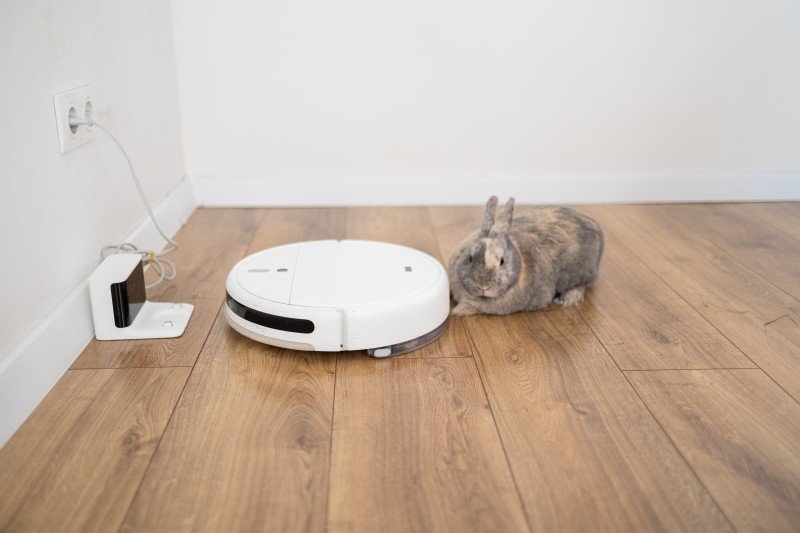Twenty Myths About Automatic Vacuum Cleaner: Busted
The Rise of Automatic Vacuum Cleaners: A Comprehensive Guide
In today's hectic world, keeping a tidy home can typically seem like a herculean job. As such, automatic vacuum cleaners— typically described as robotic vacuums— have risen in popularity, providing a useful option for busy homes. robot mop vacuum digs into the key functions, benefits, types, and maintenance of automatic vacuum, making it possible for consumers to make informed choices.
Understanding Automatic Vacuum Cleaners
Automatic vacuum cleaners are autonomous gadgets created to clean floors with very little human intervention. Geared up with sophisticated sensing units and programs, these gadgets can navigate around furniture, get used to various floor types, and even charge themselves.
Secret Features of Automatic Vacuum Cleaners
Function
Description
Navigation System
Makes use of sensors and mapping innovation to prevent barriers and efficiently cover floor area.
Cleaning Modes
Various modes such as auto, area, edge, and arranged cleaning for various requirements.
Smart Connectivity
Lots of models can link to Wi-Fi, permitting control via smart device apps or voice-activated devices like Alexa or Google Assistant.
Self-Charging
Automatically go back to its charging dock when the battery is low.
Dustbin Capacity
Various models include varying sizes of dustbins, affecting how frequently they need to be cleared.
Benefits of Automatic Vacuum Cleaners
Automatic vacuum cleaners bring a number of benefits to the table:
Convenience
- Hands-Free Cleaning: Keep floors clean with minimal effort. When set, the vacuum operates autonomously, freeing up time for other tasks.
- Remote Control: Users can begin, stop, or schedule cleanings from their smart devices, making it much easier to handle cleaning routines.
Efficiency
- Scheduled Cleaning: Set your vacuum to clean up while you're out, guaranteeing you return to a tidy home.
- Adaptive Cleaning: These vacuums typically adjust their cleaning patterns based upon floor type, optimizing efficiency on hard surface areas and carpets alike.
Cost-Effectiveness
- Minimized Labor Costs: While there is an in advance investment, ongoing savings occur from less reliance on professional cleaning company.
- Resilience: Many automatic vacuums are constructed to last, with replaceable parts that extend their life expectancy, making them a beneficial long-term investment.
Types of Automatic Vacuum Cleaners
There are numerous classifications of robotic vacuums, each dealing with various requirements:
Basic Robotic Vacuums:
- Suitable for basic cleaning and offered at moderate price points.
- Restricted in features; typically do not have innovative navigation and wise connectivity.
Smart Robotic Vacuums:
- Equipped with Wi-Fi connection and can be controlled via mobile apps.
- May include features like mapping innovation for effective cleaning paths.
Hybrid Models:
- Combine vacuuming and mopping functions, perfect for surfaces requiring both types of cleaning.
- Perfect for households with pets or kids.
Specialized Robotic Vacuums:
- Designed for particular jobs, like pet hair elimination, and might offer specific brushes and suction capabilities.
Upkeep of Automatic Vacuum Cleaners
To ensure optimal performance, routine upkeep is necessary:
Cleaning Schedules
- Dustbin Emptying: Empty the dustbin after every usage or when the vacuum alerts that it is complete.
- Filter Replacement: Depending on the model, filters might require to be washed or changed every couple of months.
Routine Checks
- Brushes and Wheels: Inspect and clean up the brushes and wheels regularly to eliminate hair and debris that may impede efficiency.
- Sensing units and Cameras: Wipe the bump sensors and cameras to make sure unobstructed navigation.
Frequently Asked Questions (FAQs)
1. How much do automatic vacuum cost?
Costs vary extensively— from budget plan designs starting around ₤ 150 to superior models costing above ₤ 1,000. Higher-priced choices typically offer sophisticated functions like smart mapping, longer battery life, and specialized cleaning modes.
2. Can automatic vacuum cleaners handle pet hair?
Yes, the majority of robotic vacuums are created to deal with animal hair. Look for models specifically designed with strong suction and pet hair filtering systems.
3. For how long do automatic vacuum last?
The lifespan of a robotic vacuum can range from 3 to 5 years, depending on the model and upkeep. Regular maintenance can extend its longevity.
4. Are automatic vacuum cleaners effective on carpets?
Many modern-day automatic vacuum cleaners are geared up with sensors that spot carpeted surfaces and adjust suction power appropriately. However, efficiency can vary based on the kind of carpet.
5. Can robotic vacuums work on multiple floor types?
Yes, lots of robotic vacuums can flawlessly shift in between floor types, such as hardwood, laminate, tile, and carpets, optimizing their cleaning method for each surface.
The development of automatic vacuum cleaners has changed household cleaning, supplying benefit and freedom from the often tiresome chore of floor maintenance. By understanding the different types, functions, and upkeep requirements, customers can make informed options and ultimately delight in a cleaner, more organized living space. Whether you're a hectic expert, an animal owner, or just someone who values a neat home, investing in an automatic vacuum can significantly boost your lifestyle.
